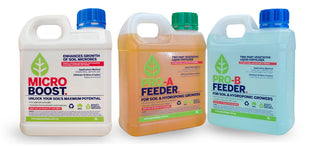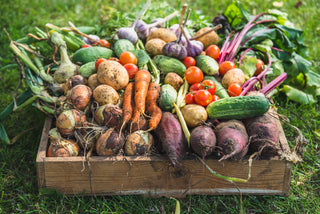What is Organic Seed Coating?
Organic seed coating involves applying a layer of organic materials to the surface of seeds. This coating serves multiple purposes, including improving seed handling, enhancing germination rates, and providing protection against pests and diseases. Unlike conventional seed treatments, organic coatings use only naturally derived substances, ensuring the process aligns with organic farming principles.
Why Are Seeds Coated?
Seed coating, particularly with organic materials, addresses several key challenges faced by farmers. The primary reasons for coating seeds include:
- Improved Handling: Coated seeds are easier to handle and plant, especially using mechanical sowing equipment.
- Enhanced Protection: The coating protects seeds from pests and diseases, reducing the need for chemical treatments.
- Boosted Germination: Organic coatings can enhance germination rates and seedling vigor, ensuring better crop establishment.
- Uniformity: Coated seeds are more uniform in size and shape, facilitating consistent planting depth and spacing.
Benefits of Organic Seed Coating
Enhanced Germination and Seedling Vigor
One of the primary advantages of organic seed coating is the improvement in germination rates. The coating materials often include nutrients and growth stimulants that give seeds a better start. As a result, coated seeds tend to germinate faster and more uniformly, leading to robust seedling development.
Protection Against Pests and Diseases
Organic coatings can incorporate natural pest repellents and disease inhibitors. This protective layer helps to shield the seeds from soil-borne pathogens and insect attacks during the critical early stages of growth. By reducing the reliance on chemical pesticides, organic seed coating promotes a healthier and more sustainable farming ecosystem.
Improved Seed Handling and Planting Efficiency
Coated seeds are generally easier to handle and plant. The coating process can make seeds more uniform in size and shape, which improves the accuracy of mechanical planting equipment. This uniformity ensures consistent planting depth and spacing, leading to better crop establishment and yield.
Environmental Sustainability
Organic seed coating aligns perfectly with the principles of organic farming. It minimizes the use of synthetic chemicals, reducing the environmental footprint of agricultural practices. The biodegradable nature of the coating materials ensures that there is no harmful residue left in the soil, promoting long-term soil health.
How Organic Seed Coating Helps Commercial Farmers
Increased Efficiency and Yield
For commercial farmers, the efficiency of sowing and the resulting crop yield are paramount. Organic seed coatings streamline the planting process by making seeds more compatible with mechanical sowing equipment. This leads to more efficient planting, reducing labor costs and time. The improved germination rates and seedling vigor directly translate to higher crop yields, maximizing the return on investment.
Cost-Effectiveness
While the initial cost of coated seeds may be higher than non-coated seeds, the long-term benefits can outweigh this. The reduction in chemical treatments, lower seedling mortality rates, and increased yields contribute to overall cost savings for farmers. Additionally, organic coatings support sustainable practices that can open up new market opportunities for organically certified produce.
Reduced Environmental Impact
Commercial farmers are increasingly aware of the environmental impact of their practices. Organic seed coating reduces the reliance on synthetic chemicals, promoting a more sustainable farming system. This not only helps in maintaining soil health but also enhances the farm's reputation among consumers who value environmentally friendly practices.
Extending Benefits to Backyard Growers
At Quality Plants & Seedlings (QPS), we are proud to be a reseller of Bejo Seeds, providing backyard growers access to technology previously available only to commercial farmers. By offering organically coated seeds, QPS empowers home gardeners to achieve the same levels of efficiency, protection, and sustainability as large-scale agricultural operations. This democratization of advanced agricultural technology means that everyone, from hobbyists to small-scale farmers, can benefit from the innovations driving modern farming.
The Process of Organic Seed Coating at Bejo Seeds
Bejo Seeds employs a meticulous and innovative process to ensure the highest quality of organic seed coatings. The process begins with the careful selection of coating materials, which are all naturally derived and compliant with organic certification standards.
Material Selection
Bejo Seeds uses a variety of organic materials for seed coating, including natural binders, biopolymers, and bio-stimulants. These materials are chosen for their ability to enhance seed performance and their environmental sustainability.
Application Process
The seeds are first cleaned and prepared to ensure that the coating adheres properly. The coating mixture is then applied using advanced equipment that ensures even coverage. Bejo Seeds utilizes precision technology to control the thickness and uniformity of the coating, optimizing the benefits for each specific seed variety.
Quality Control
Quality control is a critical aspect of Bejo Seeds' organic seed coating process. Each batch of coated seeds undergoes rigorous testing to ensure that the coating is effective and that the seeds meet the company’s high standards for germination and purity.
The Bejo Organic Range
Bejo Seeds offers an extensive range of organic seeds that cater to the needs of both commercial farmers and backyard growers. The Bejo Organic Range includes a variety of vegetables and herbs, all bred and produced under strict organic standards. This range ensures that growers have access to high-quality, disease-resistant, and high-yielding varieties that are well-suited to organic farming practices.
Commitment to Quality and Innovation
Bejo’s commitment to quality and innovation is evident in their organic range. Each variety is selected and bred for its adaptability to organic farming conditions, ensuring that growers can achieve the best possible results without compromising on their principles. The Bejo Organic Range is a testament to the company’s dedication to supporting sustainable agriculture and providing solutions that benefit both the environment and the farming community.
Conclusion
Organic seed coating represents a significant advancement in sustainable agriculture, offering numerous benefits from improved germination to enhanced pest and disease protection. Bejo Seeds stands at the forefront of this innovation, combining cutting-edge technology with a commitment to environmental stewardship. By choosing organically coated seeds, farmers can contribute to a healthier planet while enjoying the benefits of higher crop yields and more robust plants. For commercial farmers, the advantages of organic seed coatings translate to increased efficiency, cost-effectiveness, and reduced environmental impact, making it a smart choice for modern agricultural practices.
Quality Plants & Seedlings (QPS) are proud resellers, allowing backyard growers to access the same technology that was once exclusive to commercial farmers. This inclusion not only enhances the gardening experience for hobbyists and small-scale farmers but also supports the broader goal of sustainable and environmentally friendly agriculture. With the extensive Bejo Organic Range, growers of all scales can benefit from high-quality, disease-resistant, and high-yielding seeds, ensuring successful and sustainable farming practices.





